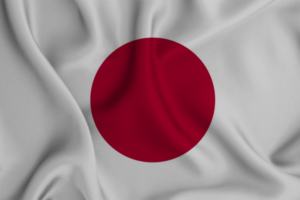Introduction:
Business law, a foundational pillar of any economy, governs the operations, formation, and dissolution of businesses. It ensures fair competition, protects stakeholders, and fosters economic growth. Brazil and the UK, two significant global economies, have distinct approaches to business law, molded by their unique histories, cultures, and economic challenges. This article provides an in-depth comparison of business law in these two nations.
1. Historical Context and Evolution:
- Brazil: Brazil’s business law has its roots in Portuguese colonial regulations but has evolved significantly post-independence. The country’s journey from an agrarian economy to an industrial powerhouse has necessitated continuous legal reforms to support its burgeoning business sector.
- UK: The UK, with its rich mercantile history, has been a pioneer in business law. From the establishment of the East India Company to the modern corporate structures, the UK’s legal framework has consistently adapted to its changing economic landscape.
2. Business Formation and Structure:
- Brazil: Brazil offers various business structures, including sole proprietorships, partnerships, and corporations. The Brazilian Civil Code and the Corporations Law provide guidelines for business formation, with an emphasis on protecting minority shareholders.
- UK: The UK’s Companies Act governs business formation, offering structures like Limited Liability Partnerships (LLPs) and Public Limited Companies (PLCs). The country’s flexible approach facilitates both small enterprises and multinational corporations.
3. Contract Law and Dispute Resolution:
- Brazil: Brazil’s Civil Code governs contracts, emphasizing good faith and mutual agreement. The country also promotes alternative dispute resolution mechanisms, like arbitration, to expedite commercial disputes.
- UK: The UK’s contract law, rooted in common law principles, emphasizes freedom of contract. The Arbitration Act and the Commercial Court facilitate efficient dispute resolution, ensuring that businesses operate smoothly.
4. Intellectual Property (IP) Rights:
- Brazil: Brazil’s IP law, governed by the Industrial Property Law and the Copyright Law, protects patents, trademarks, and copyrights. The country is also a signatory to international IP treaties, ensuring global protection for Brazilian innovations.
- UK: The UK’s IP framework, encompassing the Patents Act, Trade Marks Act, and Copyright, Designs and Patents Act, offers comprehensive protection. The Intellectual Property Office (IPO) oversees IP registrations and enforcement.
5. Employment and Labor Laws:
- Brazil: Brazil’s Consolidation of Labor Laws (CLT) provides comprehensive guidelines for employment relations, emphasizing workers’ rights and welfare. The country also has stringent regulations on working hours, wages, and occupational safety.
- UK: The UK’s Employment Rights Act and the Equality Act ensure fair employment practices, prohibiting discrimination and ensuring workers’ rights. The country also emphasizes health and safety through the Health and Safety at Work Act.
6. Competition and Antitrust Laws:
- Brazil: Brazil’s Administrative Council for Economic Defense (CADE) oversees competition laws, ensuring fair market practices. The country’s antitrust regulations focus on preventing monopolies and promoting consumer welfare.
- UK: The UK’s Competition and Markets Authority (CMA) regulates competition, ensuring a level playing field for businesses. The Competition Act and the Enterprise Act provide the legal framework, emphasizing consumer protection and market transparency.
7. Taxation and Financial Regulations:
- Brazil: Brazil’s complex tax system encompasses federal, state, and municipal taxes. The country’s financial regulations, overseen by the Central Bank of Brazil, ensure monetary stability and protect investors.
- UK: The UK’s Her Majesty’s Revenue and Customs (HMRC) oversees taxation, with clear guidelines for businesses. The Financial Conduct Authority (FCA) and the Prudential Regulation Authority (PRA) regulate the country’s financial sector, ensuring transparency and investor protection.
8. International Business Relations:
- Brazil: Brazil’s business law emphasizes international cooperation, with the country being a member of the World Trade Organization (WTO) and the Mercosur trade bloc. The country also has numerous bilateral trade agreements, fostering global business relations.
- UK: The UK, post-Brexit, has been actively forging new trade agreements, emphasizing its global business outlook. The country’s legal framework facilitates international business, ensuring that UK enterprises thrive globally.
Conclusion:
Business law, while universal in its objectives, is a reflection of a country’s economic priorities, historical trajectory, and societal values. Brazil and the UK, with their distinct challenges and strengths, offer invaluable insights into the multifaceted world of business law. As globalization reshapes economies, understanding these nuances becomes essential for businesses, legal practitioners, and policymakers navigating the intricate web of international commerce.



